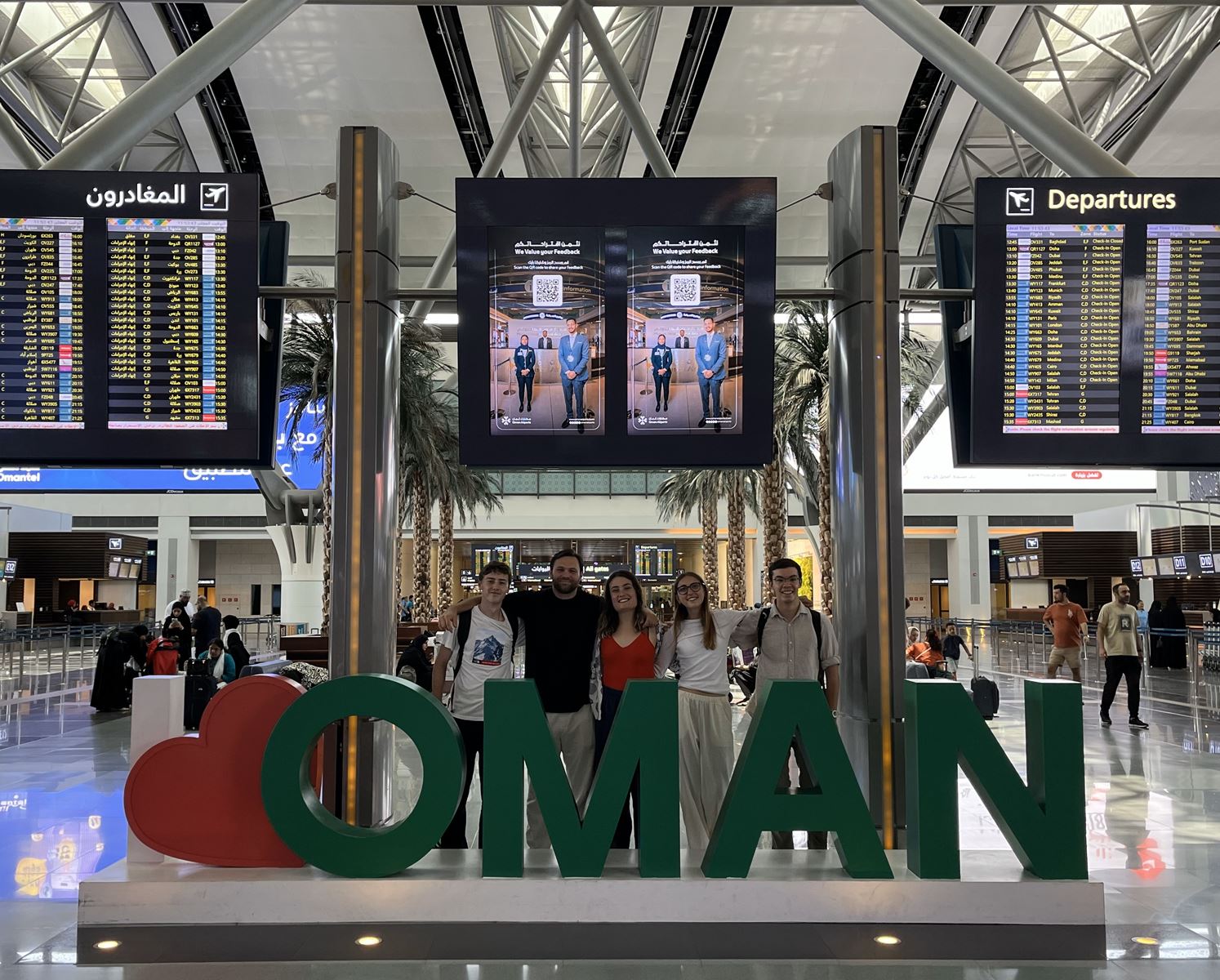
The following article is written by four of our Arabic Language Scheme participants Maria Pinder, Joseph Hearn, Thomas Buckley, and Alexander Giannos, who discuss their experiences studying Arabic in Oman and what they've gained from their time there.
Studying Arabic at the Sultan Qaboos College for Teaching Arabic to Non-Native Speakers in Manah, Oman was invaluable on an educational and personal level. The experience provided a unique insight into the beautiful Omani culture and its people over the course of seven weeks. We flew to Oman in late-June and gathered in Manah for seven fascinating weeks at the Institute.
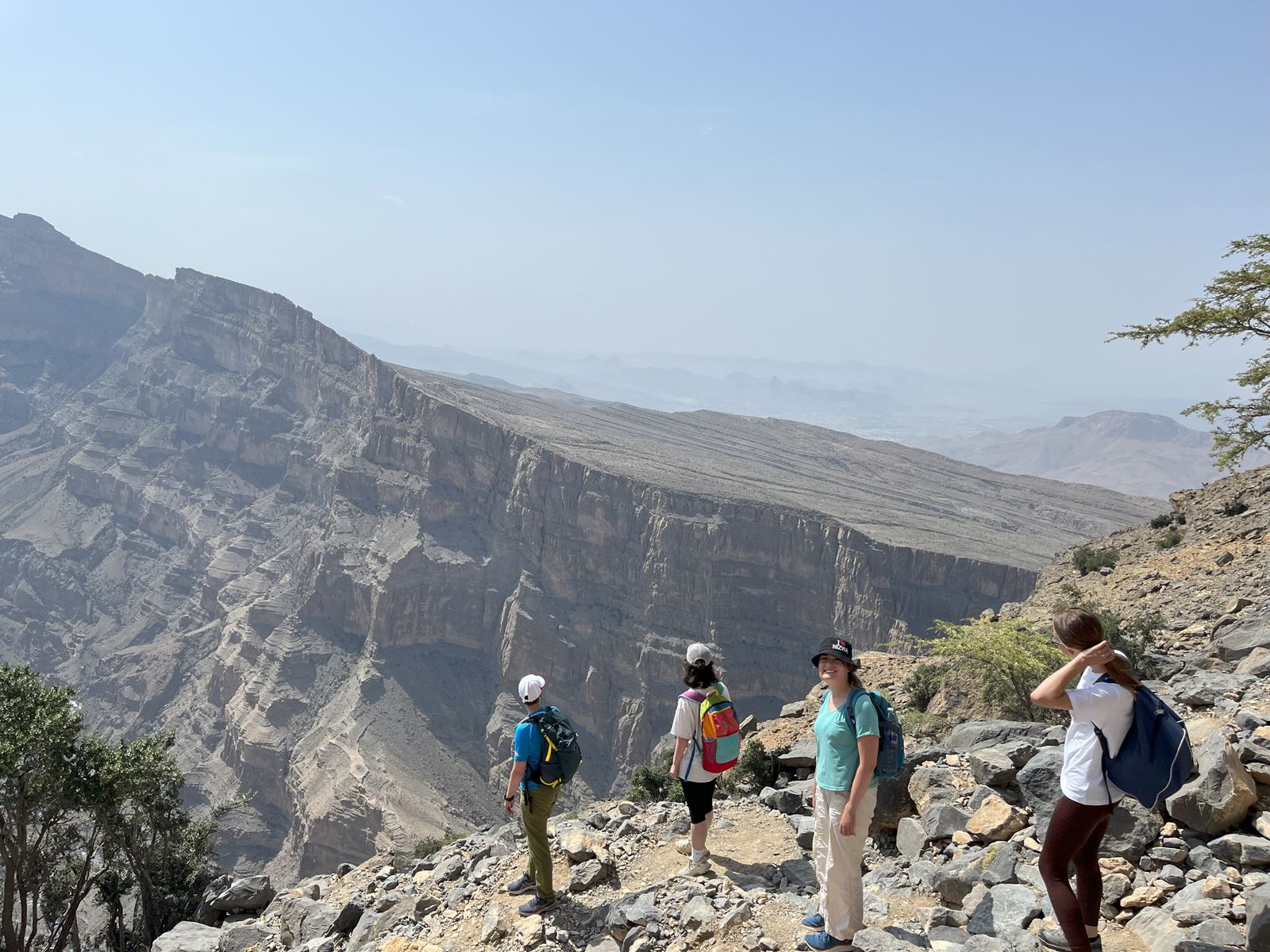
All ten of us on the Society’s scholarship were at varying stages of our academic and professional lives, whether starting a PhD, finishing an undergraduate year abroad, or beginning a new job. It was fascinating to hear about the many different family-related, recreational, and educational paths that led the 2024 cohort of scholars to studying Arabic. Some grew up in or spent much time across the Middle East during their youth, whilst others had always been fascinated with learning new languages, and one even picked up Arabic after completing their undergraduate studies. We previously studied at a variety of different schools, institutes, and universities across the Arab World (in Morocco, Egypt, Lebanon, and Jordan), and as individuals were able to share many insights into the dialectal differences and educational approaches that underpinned our language-learning experiences.
It was also heartening to learn of our cohort’s exciting and varied career goals and ambitions, spanning law, economics and finance, academic research, government and diplomacy, and the charity sector. Reassuringly, we all agreed that we would like the Arabic language and our appreciation and understanding of Middle Eastern politics, economics, and culture to play a role, in some shape or form, in our future careers.
We were deeply enthusiastic about the amazing programme of teaching and cultural excursions that awaited us in historic Manah, a small town in Ad-Dakhiliyah. The programme more than lived up to these expectations, as did Oman’s natural wonders, hospitable and caring culture, and thrilling historical sites.
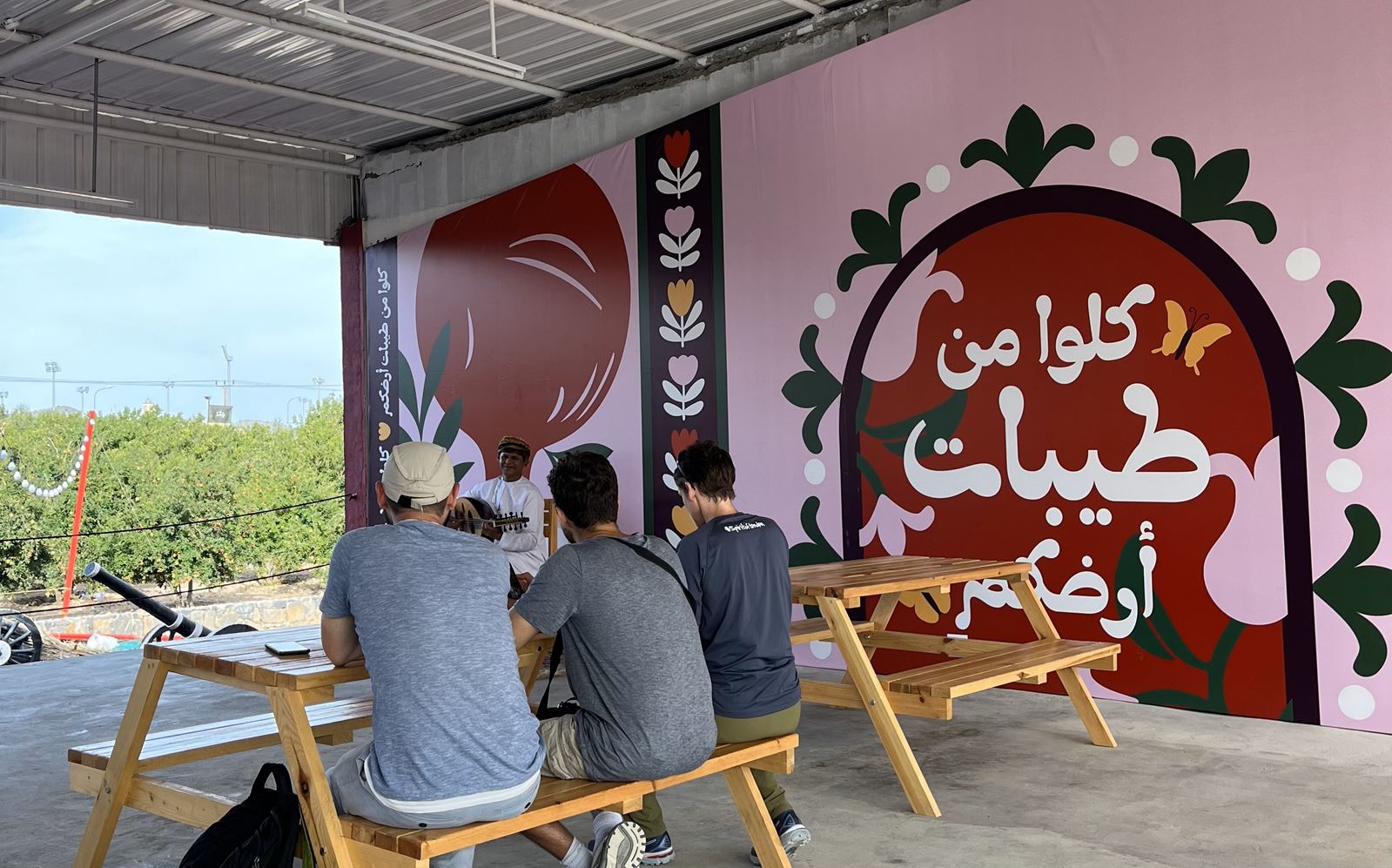
Arabic classes
Our classes focused on Modern Standard Arabic (MSA) and our teachers led us through a varied and interesting set of weekly topics. We studied vocabulary, texts, and videos on subjects ranging from Oman’s smart cities, to the importance of cross-cultural dialogue. Every day at 7.55am the residents of Manah could spot a line of students crossing the scrubland from the guesthouse to the Institute. After a quick glug of karak tea and a mouthful of fresh dates, we started our classes at 8am. We participated in varied class activities with short, caffeine-fuelled breaks until 12.30pm, unless there was a class trip or the novelty of running outside for a sudden rainstorm. After the end of classes, we returned each day to the guesthouse for a tasty buffet lunch. This was usually followed by a study session, a trip to the futuristic library at the Oman Across the Ages Museum, a salubrious trip to Nizwa’s café-lined streets, or, for some, a game of cricket.
There were 45 students studying Arabic at the Sultan Qaboos College, all of varying ages and nationalities. It is testament to the competitiveness of the British Omani Society’s Arabic Language Scheme, the thoroughness of the selection process, and the very high Arabic language standard of the 2024 cohort’s scholars that, without exception, all ten were placed in the top two language sets at the school. Indeed, in terms of nationality, British Omani Society scholars were the biggest group in the school’s most advanced class.
We studied Modern Standard Arabic (MSA) for four hours a day from Sunday to Thursday, and were very lucky to have two teachers per class, focusing on our writing, reading, speaking, and listening skills. Each teacher strove to create an encouraging, interactive environment, where we participated in a variety of activities and took full advantage of the well-stocked library. We also enjoyed the carefully considered trips; it was fascinating seeing firsthand the advancements in science and technology after reading about them in class. The trip to Nizwa Grand Mosque, where we learnt about its admirable efforts in strengthening cultural cohesion and read books only a few have ever heard of in their built-in library, was equally unforgettable. In the evenings we would relax in the majlis (the guest house’s living room) and do our independent study in between lamenting over the Euros and a, sadly, short-lived Monopoly game. Although we were at different stages in our language learning journey, we all noticed our Arabic improve greatly.
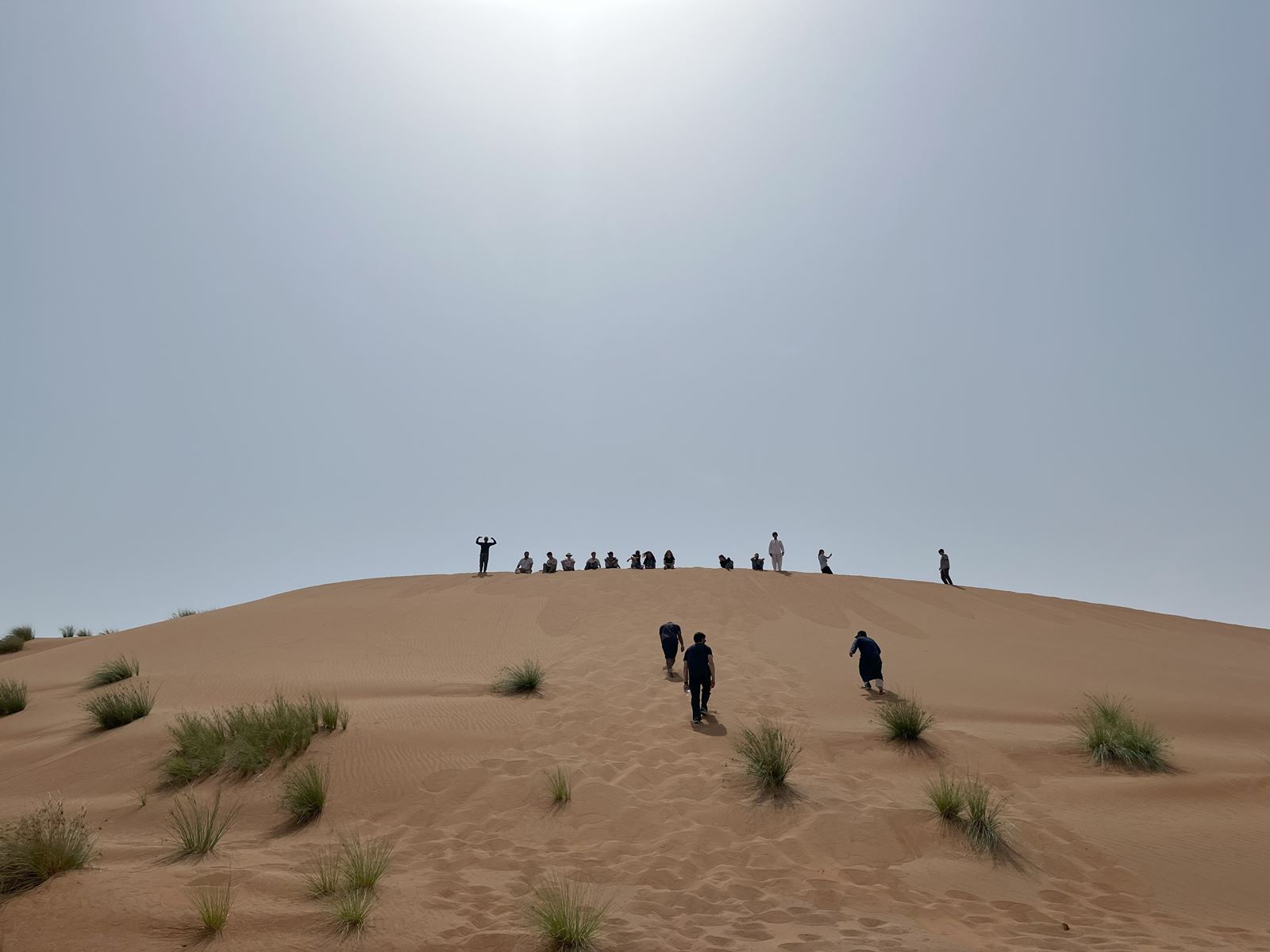
Language partners
The language partner scheme was a highlight for many of us. For four hours a week we would meet our language partners, recent Omani graduates, with a fellow Arabic student. The scheme offered an opportunity to develop our oral skills and learn the local dialect in a relaxed environment. Some of our partners invited us back to their homes and introduced us to their friends and family. For many others, we were introduced to their favourite pastimes and discussed local feelings and aspirations about the future of Oman. The scheme was also a fruitful opportunity to interact with the rest of our cohort at the College. We bonded over our shared experiences around the Middle East and taught each other common phrases in other Arabic dialects. Many of us made connections for life and are motivated to return to Oman to strengthen our friendships.
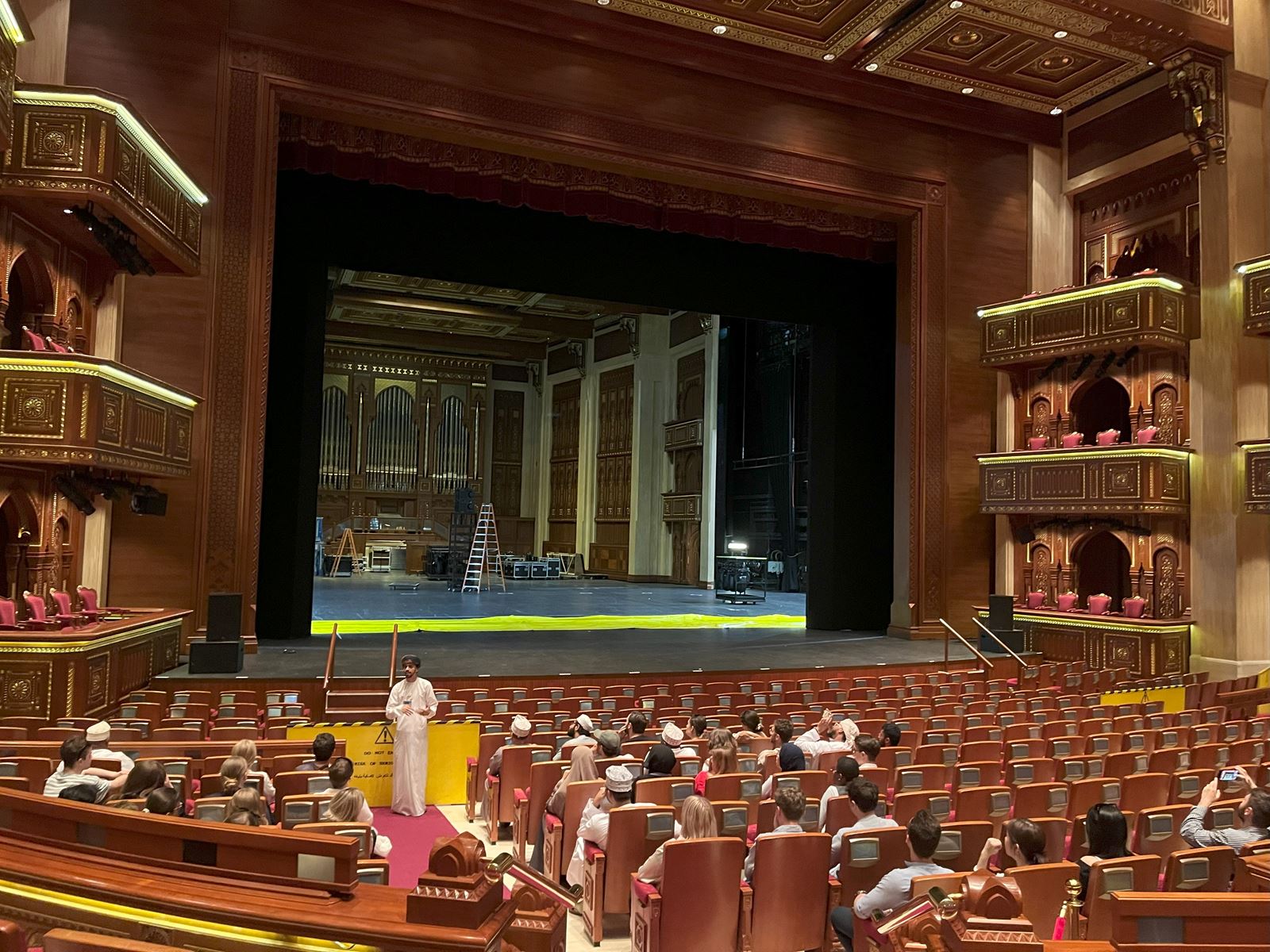
Trips
It is safe to say we took full advantage of our weekends, using the free time to see firsthand the stunning natural beauty and friendly people of Oman. Some highlights included a hike through Jebel Shams, where we saw an abandoned village and had lunch with local goats. We also swam with turtles in the Ad Dimaniyat Islands off the coast of Muscat, where some of the boys saw a shark (/big fish). We also travelled into Nizwa frequently, exploring the recently refurbished old town and undertook our independent study in Oman across the Ages Museum’s gorgeous library. Furthermore, no trip to Oman is complete without a swim in a Wadi, which we all ticked off our bucket lists in a jam-packed weekend to Sharqiya. We visited both Wadi Shab and Wadi Bani Khaled, and learnt about the locals’ efforts in turtle conservation at Ras Al Jinz. However, a personal highlight was drinking unlimited, fresh pomegranate juice and watching a musician play the Oud at the Pomegranate festival in Jebel Akhdar. We were also very fortunate to join Dr Liane Saunders for afternoon tea at the British embassy on our final day in Oman. It was enlightening hearing about Dr Saunders’ work and the importance of a collaborative outlook between Britons and Omanis in the local economy.
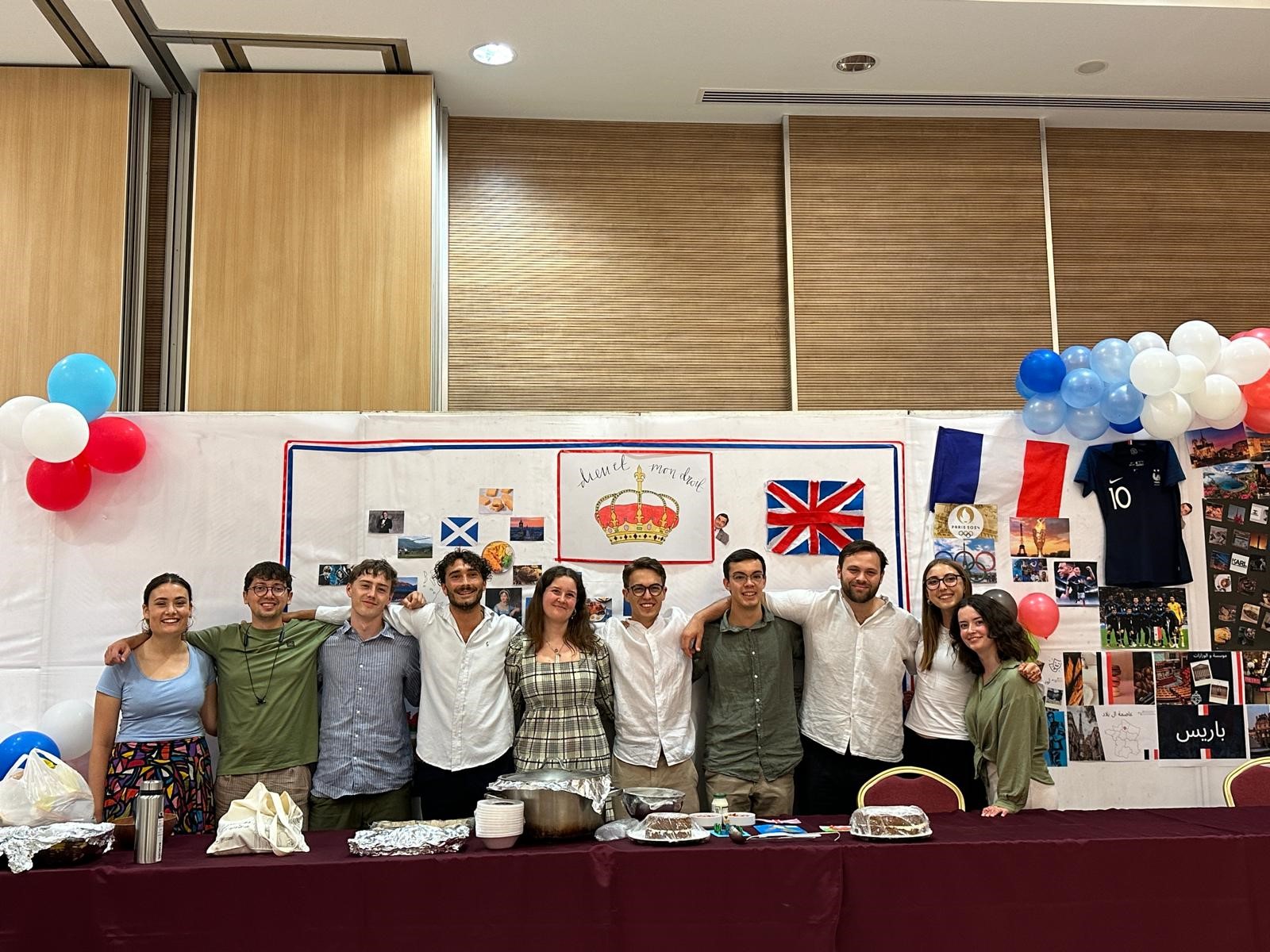
Conclusion
Oman was a country some of us had only ever heard of, and most of us had never even considered visiting before applying to the Scheme. However, the Arabic Language Scheme with the Sultan Qaboos College introduced us to the rich history and culture of Oman. It was a special experience to start our days walking to school with a view of the mountains and to then walk back to Bait Al Dhiyafa (the guest house) listening to the call to prayer. We feel very fortunate and grateful to have been granted this opportunity by the British Omani Society, and will forever have a piece of Oman with us in our Bahla pottery.
Further information:
The British Omani Society, with generous support from the Omani Ministry of Foreign Affairs, provides 10 full scholarships for a period of intensive Arabic study in Oman each year, June to August. Find out more here.